Code Review
Developers
Software Development
How Manual Code Review Affect Your Developers
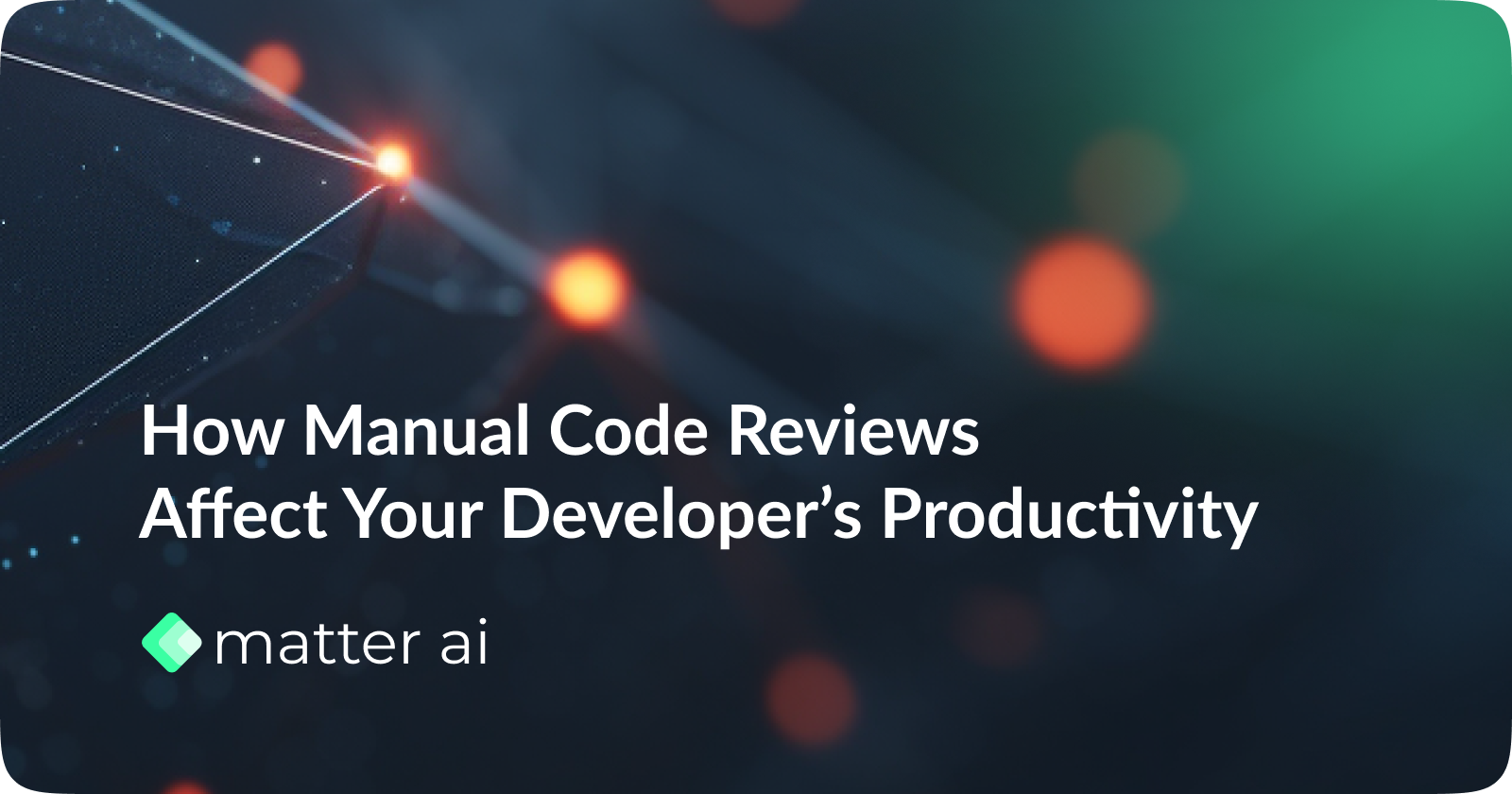
With the stiff competition in the software development world, the topmost priority is optimizing productivity so that projects are delivered on time and to specification. Manual code review keeps the code quality intact by ensuring the code against coding standards with the presence of bugs and acceptance for general purpose within a project.
Although it's one vital practice, it also has many effects on the productivity of the development teams. Considering all the time consumed in doing manual code reviews, they can also bring missed innovation opportunities, acting as both a boon and a bane. This article will discuss the effect of manual code reviews on developers' productivity, along with some suggestions for making it better.
Challenges
Manual Code Reviews: Extremely Time-Consuming
Manual code reviews are considerably productive; of this time taking nature. A developer requesting a pull could spend hours painstakingly reviewing and analyzing someone else' facade, effectiveness, and correctness.
This work needs to get done, but it comes at a price. During that time, developers could be working on implementing new features, fixing bugs, or tuning for performance, all of which count toward project development. They are spending project time reviewing other people's codes.
Worse, if reviews are slow and/or given low priority, they will end up blocking the development pipeline. What should be a fast feedback loop becomes an unnecessarily lengthy process, causing delays in code merges and thereby delays in feature releases or bug fixes. In large teams, this leads to several developers waiting for reviews to continue on their own work, causing a cascade of inefficiencies.
Cognitive Load And Programmer Attention
Manual code review itself carries cognitive burden on the developer to suffer cognitive fatigue. Code review refers to moments of full attention and concentration. While putting a lot of attention into searching for bugs, security holes, and performance issues, and checking compliance to best practices, the developer is drawn away from tasks that had been actively engaging his/her attention and may even endanger productivity.
Research has found that context switching—switching back and forth among tasks—interrupts focus and impairs total productivity. A developer engaged in reviewing a long piece of code finds it hard to acclimatize to his/her ongoing work again after a longtime review, which increases ramp-up time and ultimately shrinks the number of work hours allocated to development.
Furthermore, the monotonous nature of code reviewing adds to the burnout factor. The wear and tear of a psychologist from having to keep on reviewing reams of code means they hardly get a break, which in turn leads to decreased focus and little care to review that code afterwards. With time, this can create a cycle of diminishing returns whereby developers become a form of cognitive dissonance.
Are you looking for a way to improve your code review process? Learn more on how MatterAI helps team to solve code review challenges with AI: https://matterai.so
Share this Article:
More Articles
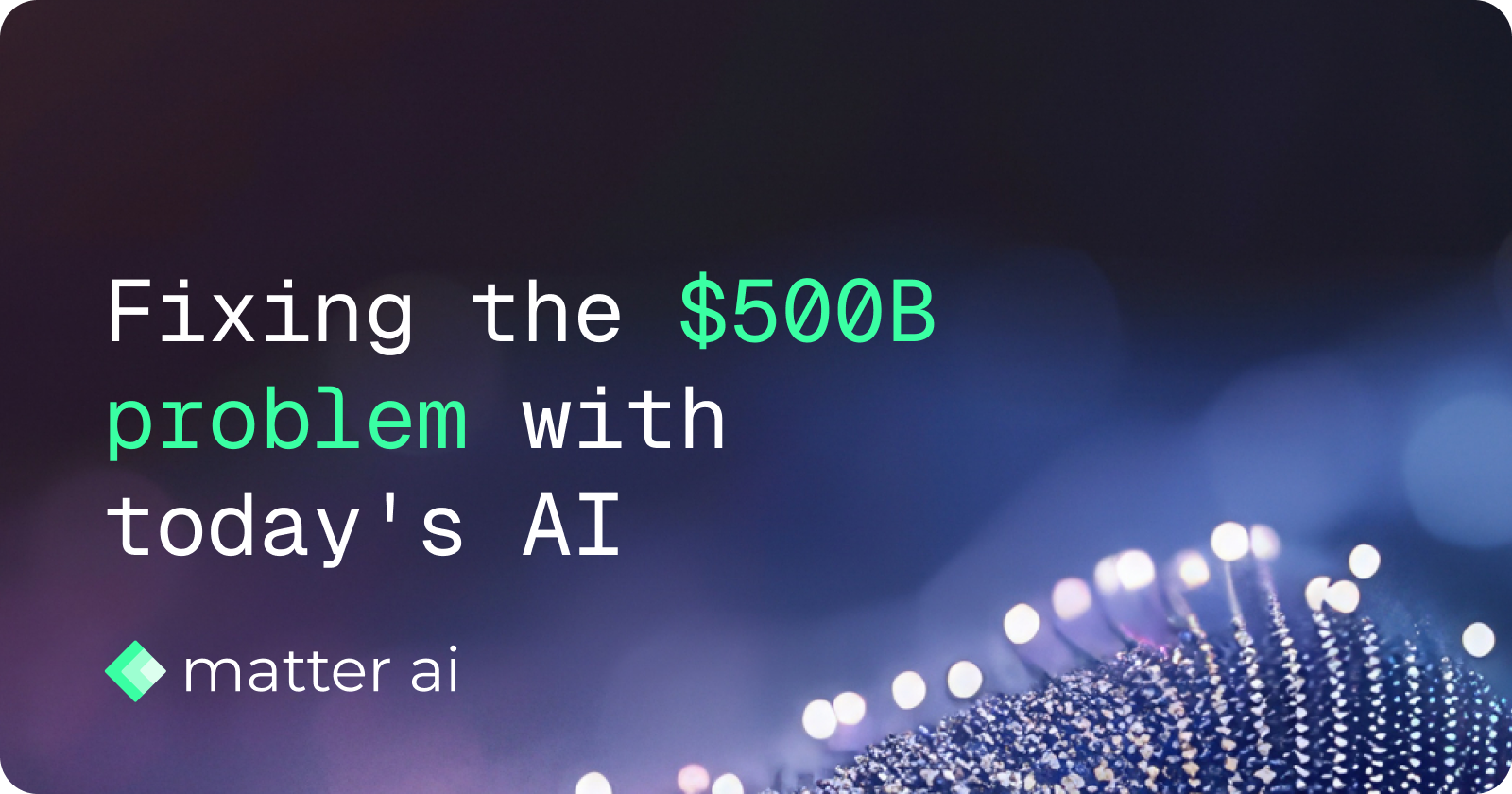
Fixing the $500B problem with today's AI
The key challenges that AI presents today and how we at MatterAI are working on fix them.

LLM Sampling: Engineering Deep Dive
How to tune LLMs to work for you with samplings
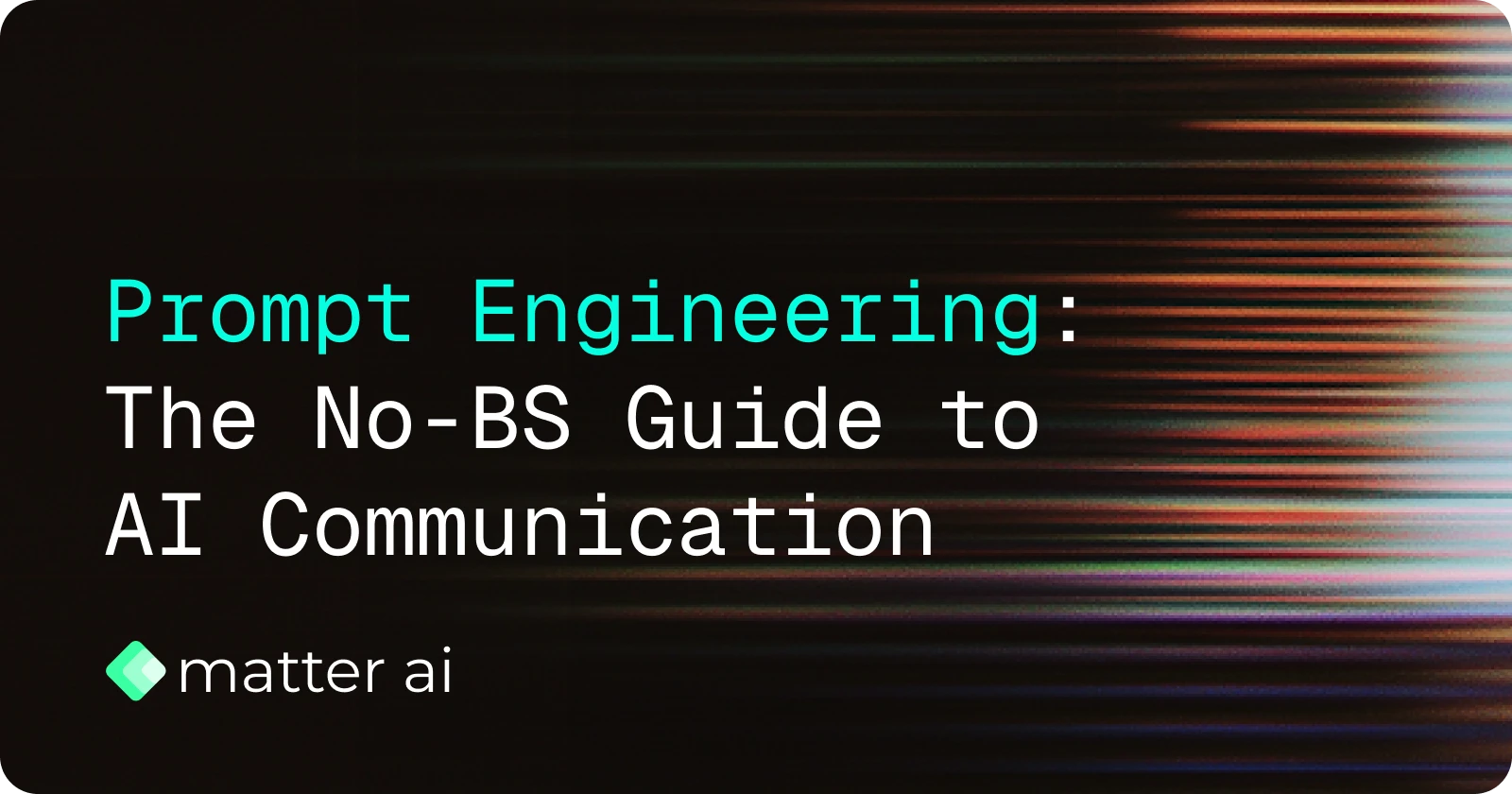
Prompt Engineering: The No-BS Guide to AI Communication
Understand, structure and implement prompts that gets you the best, consistant and reduced hallucination outputs.
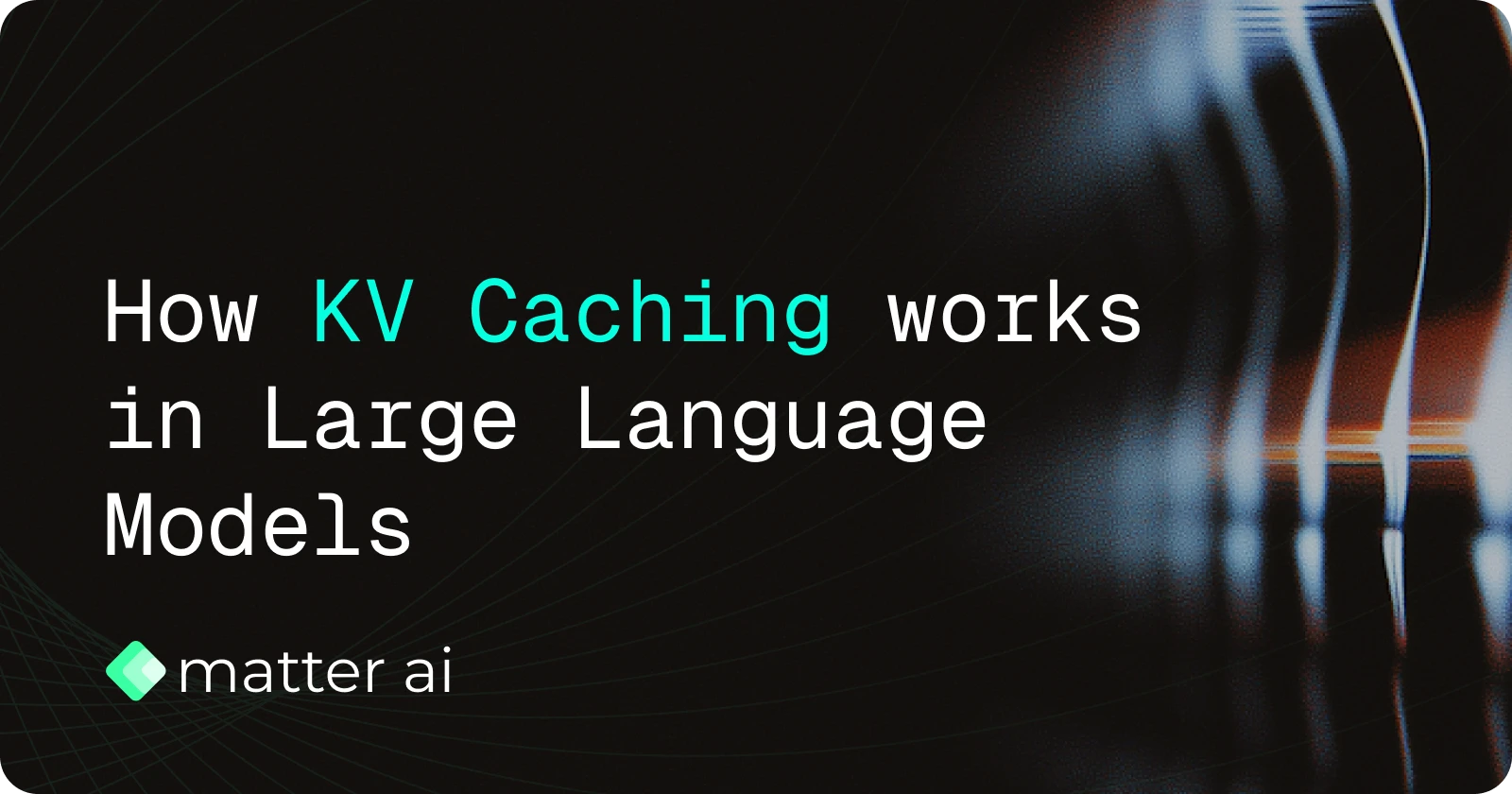
How KV Caching Works in Large Language Models
KV caching is the optimization that solves this problem, making LLMs faster and more efficient
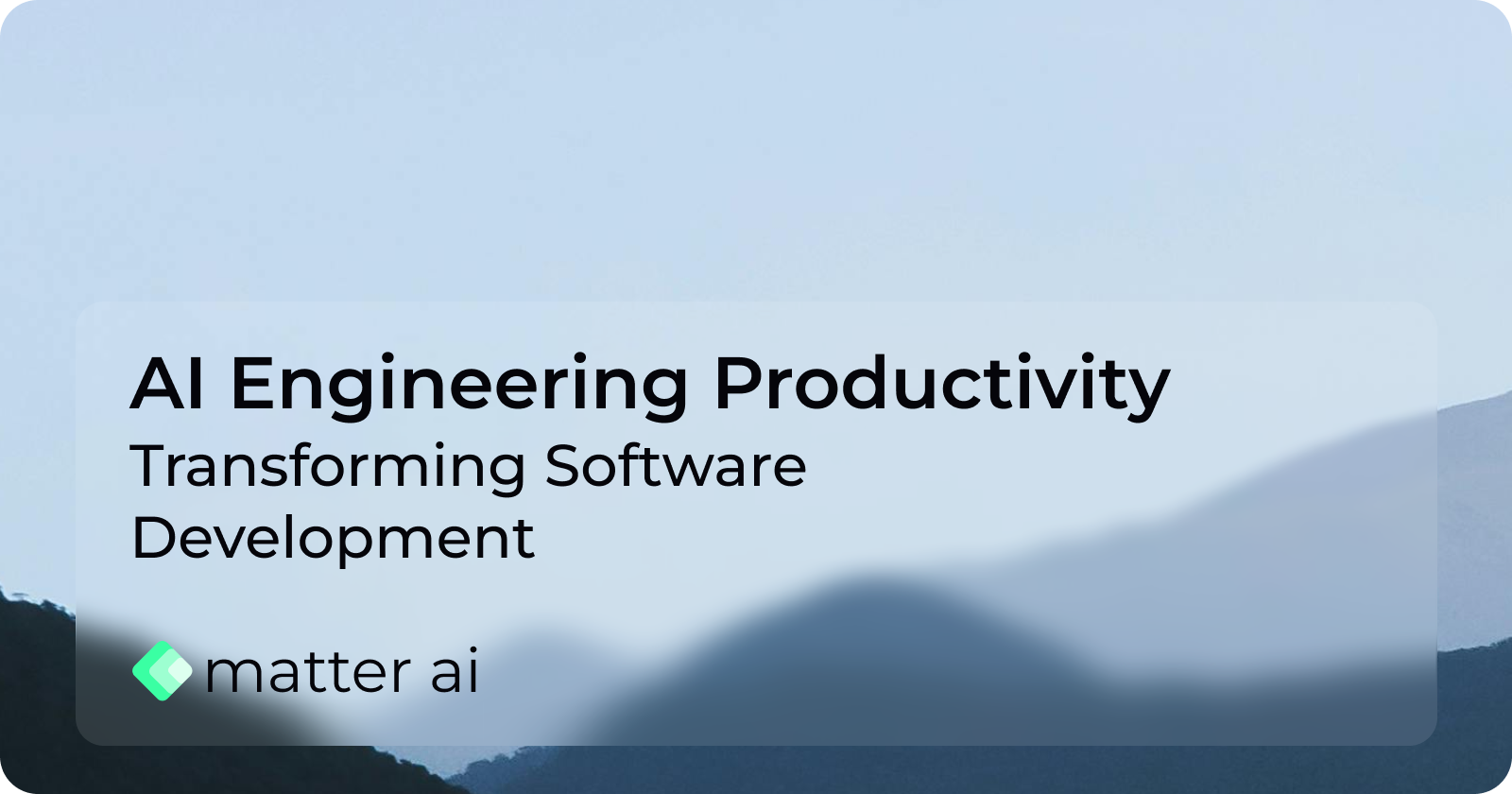
AI Engineering Productivity: Transforming Software Development
Artificial intelligence isn't just another tool in the developer's toolkit—it's fundamentally changing how we approach problem-solving, code creation, and system design.
Continue Reading

Fixing the $500B problem with today's AI
The key challenges that AI presents today and how we at MatterAI are working on fix them.

LLM Sampling: Engineering Deep Dive
How to tune LLMs to work for you with samplings

Prompt Engineering: The No-BS Guide to AI Communication
Understand, structure and implement prompts that gets you the best, consistant and reduced hallucination outputs.
